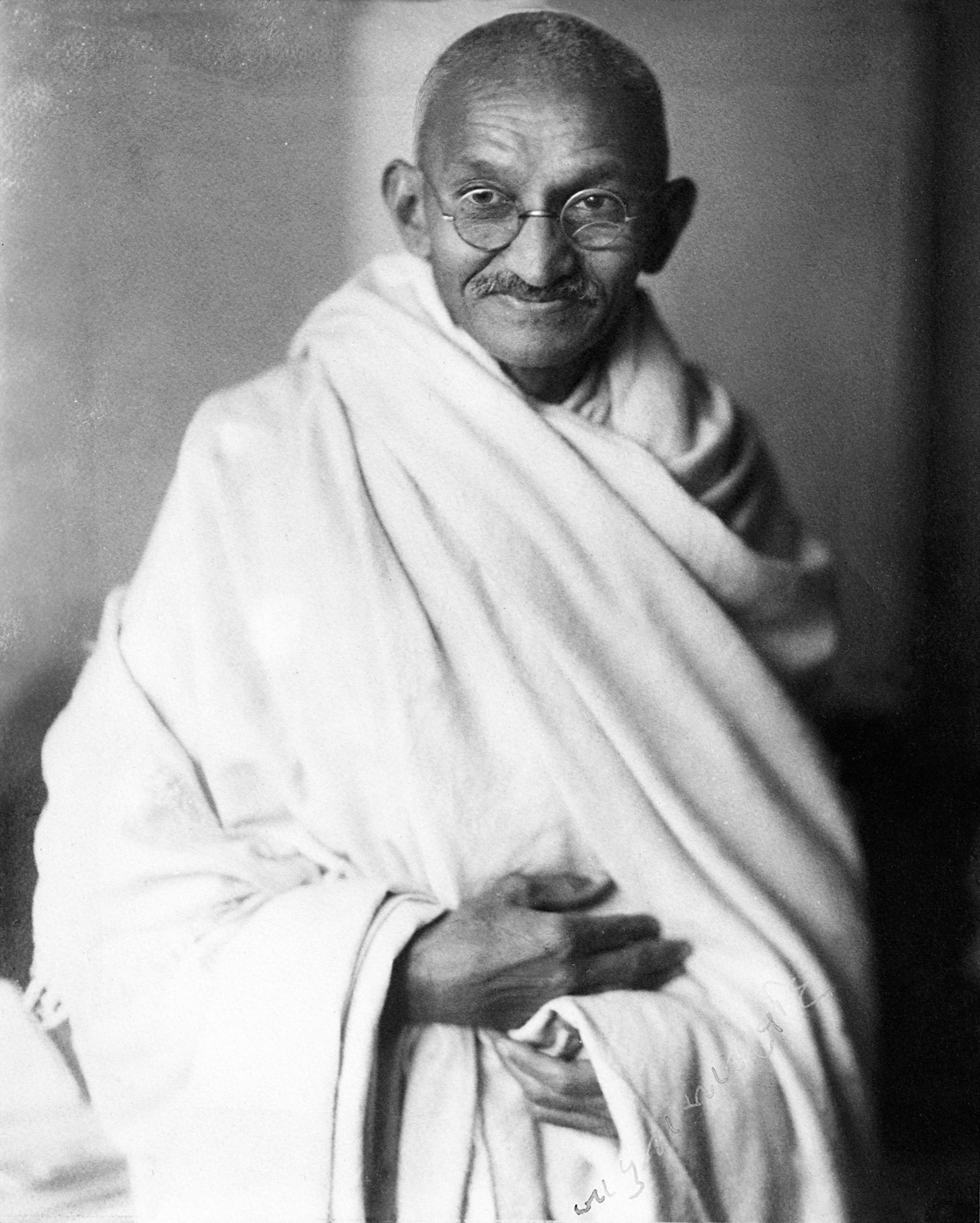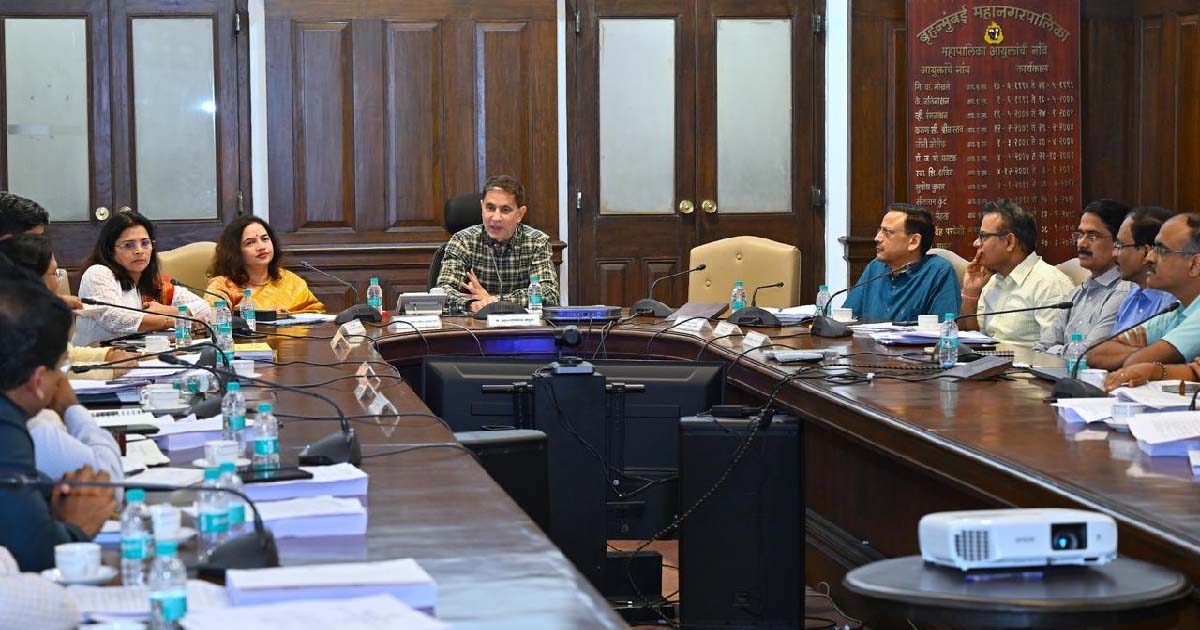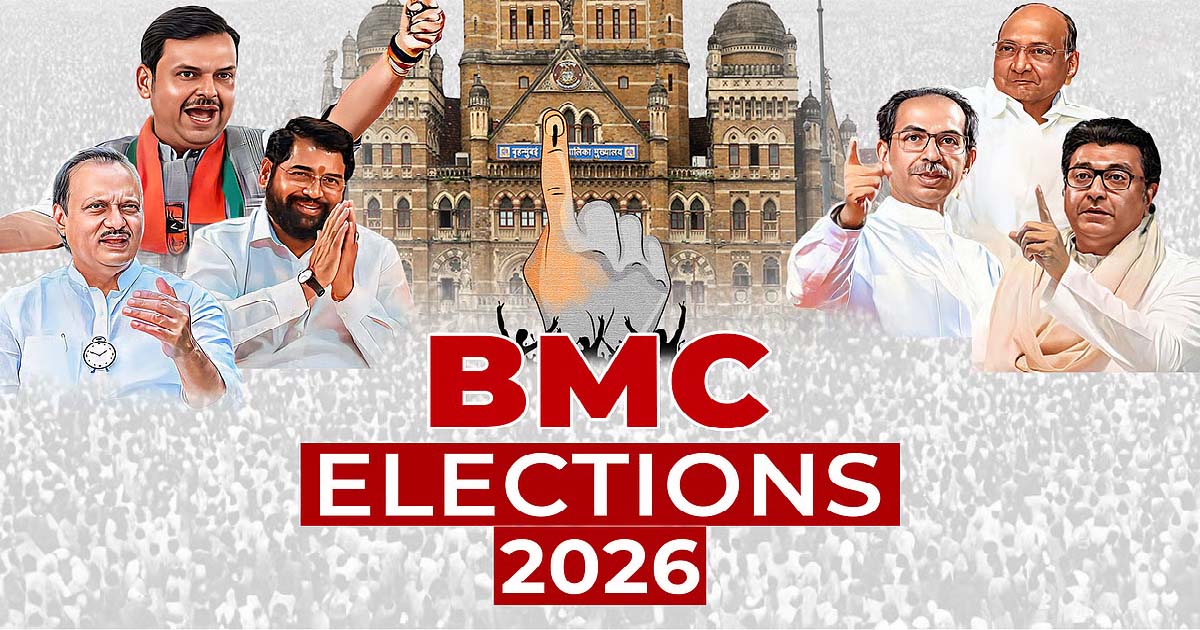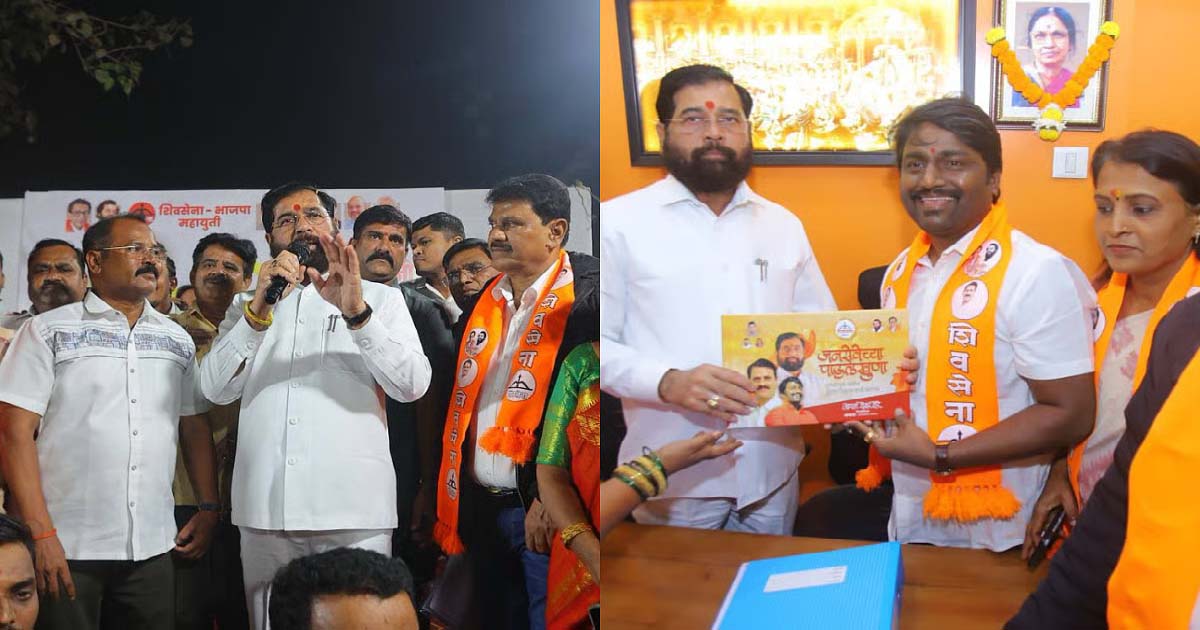Maharashtra
Stop ‘hate rally’ or face contempt: Mahatma Gandhi Foundation to Navi Mumbai CoP

A2FP81 Rare studio photograph of Mahatma Gandhi taken in London England UK at the request of Lord Irwin 1931
The Mahatma Gandhi Foundation on Wednesday called upon the Navi Mumbai police to take preventive action against the proposed Hindu Jan Akrosh Morcha to be organised by the Sakal Hindu Samaj in Navi Mumbai on February 26, or face contempt of the Supreme Court.
In a letter to the Navi Mumbai Police Commissioner Milind Bharambe, MGF President Tushar A. Gandhi – the great grandson of the Mahatma – pointed to the increasing incidents of hate speeches and rallies in Mumbai, in other cities and towns in Maharashtra, with police “not concerned”.
“Due to this apathy on the part of the law enforcement agencies, concerned citizens are compelled to move the courts to ensure implementation of several orders passed by the highest courts of the land,” he said.
The MGF warned that if timely action of prosecuting those indulging in inciting hate is not taken by the police suo moto – as ordered by the SC – “law abiding citizens will be forced to appeal to the court to punish you for abdicating your duty and disregarding the court’s orders”.
At the preliminary hearing of a plea in the Supreme Court to stop a similar rally of HJM in Mumbai on February 5, the judges had lamented that “no one is taking action despite our passing orders” – referring to its October 21, 2022 order to the Delhi, Uttar Pradesh and Uttarakhand governments to clamp down on hate speeches and lodge criminal offences without waiting for complaints to be filed.
“It is shameful that 75 years since Independence the police prefer to serve the political bosses rather than the Constitution and the law of the land,” said Gandhi sharply.
Recalling the rally in Mumbai on January 29, Gandhi said that provocative speeches inciting violence against minorities in general, and Muslims in particular, were made, and such rallies are being used to amplify the hate campaign, while the police turn a blind eye, and for some strange reasons even allow them a free rein.
Bharatiya Janata Party’s Telangana MLA T. Raja Singh, at the rally, had given open calls to kill Muslims, similar to those given in the various ‘Dharma Sansads’, and now the hate campaign is targetting Mumbai and Maharashtra, but there is no police action against such blatant instances, the MGF said.
“The SC orders in the Gaurakshak mob lynching case has given enough power and instructions to the police to act indepndently, accordingly kindly perform your duty as per your oath to the Constitution. Do your duty honestly and stop this reign of hate,” Gandhi urged Bharambe.
Maharashtra
Mumbai Municipal Commissioner Administrator and Election Chairman Bhushan Gagrani has ordered election officers and agencies to act in a coordinated manner.

Mumbai Municipal Corporation Mumbai Municipal Corporation has directed the Municipal Commissioner Bhushan Gagrani to ensure strict implementation of the code of conduct during the elections and to ensure the process.
The Returning Officer should take necessary precautions to ensure that the general elections of the Municipal Corporation are held in a fearless, free and transparent environment. Before preparing the final list of polling stations, a live inspection of the polling stations should be carried out. Officers and employees related to the election process should be appointed within the stipulated time and they should be trained. Municipal Corporation Commissioner and District Election Officer Bhushan Gagrani have given various instructions to keep various teams working in connection with the elections. Gagrani has also directed that security measures be taken for effective implementation of the code of conduct by the police, excise and other departments. As per the direct election programme for the Mumbai Municipal Corporation General Elections 2025-26, a joint meeting of the officers of the Municipal Corporation, Returning Officers, Police, Excise Department officers was held at the Municipal Corporation Headquarters. Municipal Corporation Commissioner and District Election Officer Mr. Bhushan Gagrani was also present as Chairman.
Additional Municipal Corporation Commissioner (City) Dr. Ashwini Joshi, Special Duty Officer (Election) Mr. Vijay Balmwar, Joint Commissioner (Tax Assessment and Collection) Mr. Vishwas Shankarwar, Deputy Commissioner (Reforms) Mr. Sanjog Kabre, Deputy Commissioner (General Administration) Mr. Kishore Gandhi, Additional Commissioner (General Administration) Mr. Ambekar Gandhi, Deputy Commissioner (General Administration). Konkan Division Mrs. Farogh Mukadam, District Election Officer Mr. Vijay Kumar Suryavanshi and 23 Election Officers were present.
Municipal Commissioner and District Election Officer Bhushan Gagrani said that the State Election Commission has fixed the criteria for the determination of election polling stations. According to this, there are about 10 thousand 111 polling stations in the limits of Mumbai Municipal Corporation. Facilities like electricity supply, drinking water supply, toilets, ramps etc. have been provided at these polling stations. The Election Officer will inspect and confirm it. After that, the final list of polling stations should be prepared. A ‘Voter Assistance Centre’ should be set up near the polling station to help voters find their names. He directed that information boards should be put up at polling stations to inform the voters.
The process of appointing officers and employees required for the election process is underway. Training will be given to the officers and employees appointed for election work. Detailed guidance will be given on the voting process, election laws, model code of conduct, EVM handling and responsibilities at the polling station. Training of all employees is mandatory for the success of the election process. The above instructions should be strictly followed. The Returning Officer should contact the Deputy Commissioner of the Municipal Corporation Circle, Assistant Commissioner of Administrative Departments. Gagrani also directed that action should be taken in a coordinated manner.
To ensure effective and strict implementation of the model code of conduct, all necessary precautions should be taken in collaboration with the Police Department, Excise Department and other concerned departments. A strict watch should be kept on the malpractices committed to influence the voters during the election period. Special vigilance should be taken in sensitive and highly sensitive areas to maintain law and order. Regular patrolling, check posts, checking of vehicles and immediate action should be taken on suspicious movements. If any violation of the model code of conduct is found, immediate and strict action should be taken against the concerned as per the rules, Gagrani has directed.
Maharashtra
BMC Elections 2026: Will ‘Marathi Manoos’ Decide The Winner Of Mumbai Civic Polls?

Mumbai: The upcoming Brihanmumbai Municipal Corporation (BMC) elections, scheduled for January 15, 2026, are set to be a definitive battle for Mumbai’s soul. At the heart of this contest is the ‘Marathi Manoos’ factor, a demographic that comprises approximately over 30 per cent of the city’s electorate but holds disproportionate influence over the narrative of ‘Marathi Asmita’ (pride).
With the split in the Shiv Sena and the emergence of competing claims for the Marathi vote, several key wards and areas have become the primary battlegrounds.
Traditionally, the epicentre of Marathi politics, these areas are the birthplace of the Shiv Sena.
The Dynamics: These wards have seen a shift from mill-worker-dominated chawls to luxury high-rises. However, the core identity remains fiercely Marathi.
Key Conflict: This is a prestige battle for the Uddhav Thackeray-led Sena (UBT) to retain its home turf against the Eknath Shinde-led Sena, which claims the true legacy of Bal Thackeray. The MNS (Maharashtra Navnirman Sena) under Raj Thackeray also remains a potent third force here, often acting as a ‘spoiler’ or a kingmaker.
While the western suburbs are often associated with Gujarati and North Indian populations, specific areas like Vile Parle (East) and Dahisar have dense Marathi clusters.
Vile Parle (Ward K-East): Known as a cultural hub, the Marathi middle class here is vocal and politically active. The BJP is aggressively courting this segment by promising a ‘Marathi Mayor,’ a strategic move to peel away traditional Sena loyalists.
Dahisar (Ward R-North): As one of the last frontiers of the city, Dahisar has a major ‘Bhumiputra’ population. Issues of local redevelopment and infrastructure are being framed through the lens of preserving Marathi areas.
The eastern suburbs house a massive Marathi-speaking population, particularly in the lower-middle-class and labour segments.
Bhandup & Mulund (Ward S): Bhandup has historically seen high-voltage clashes between the Sena and MNS. The ‘Marathi vs Outsider’ narrative often surfaces here regarding job opportunities and housing.
Chembur (Ward M-West): This area sees a mix of Dalit-Marathi and upper-caste Marathi voters. The Maha Vikas Aghadi (MVA) is counting on a consolidated Marathi-Dalit-Muslim front, while the Mahayuti is focusing on splitting the Marathi vote through the Shinde faction’s ‘Sons of the Soil’ rhetoric.
In a historic departure from its usual plank of ‘Vikas’ (Development), the BJP has recently declared that if the Mahayuti alliance wins, the Mayor of Mumbai will be a Marathi Manoos. This is a direct attempt to neutralise the ‘Anti-Marathi’ tag often used against the party by the Sena UBT faction.
The Thackeray Cousins: Reports of a tactical understanding between Uddhav and Raj Thackeray could consolidate the Marathi vote.
Delimitation Impact: With nearly 20-25 per cent of ward boundaries modified in the recent rectification, traditional vote banks have been disrupted, making grassroots mobilisation critical.
Housing & Displacement: The ‘Marathi Manoos’ being pushed out of Mumbai to the Mumbai Metropolitan Region (MMR) due to high costs is a primary emotional trigger that the opposition will use against the ruling dispensation.
As January 15 approaches, these wards will not just decide who controls the country’s richest civic body, but also who truly represents the Marathi identity in the city.
Maharashtra
Ahead of BMC Polls 2026, Eknath Shinde Rallies Shiv Sainiks Across North Mumbai, Calls for United Push

With the Brihanmumbai Municipal Corporation elections gathering momentum, Maharashtra Deputy Chief Minister Eknath Shinde on Wednesday intensified grassroots outreach by visiting several Shiv Sena branches across North Mumbai. Shinde interacted with party workers in Dahisar, Borivali, Kandivali, Malad and Magathane, urging unity and aggressive mobilisation ahead of the civic polls scheduled for January 15.
Referring to the announcement of the municipal elections, Shinde said the political atmosphere in Mumbai had clearly heated up. Using a colloquial metaphor, he remarked that the betel nut had been split and the wedding rush had begun, signalling that the real political contest was now underway.
He appealed to Shiv Sainiks to work together with discipline and commitment to ensure the saffron flag is hoisted over the civic body. Stressing organisational strength, Shinde said the coming weeks would be crucial in determining who controls the country’s richest municipal corporation.
During his interactions, Shinde highlighted the development work carried out during his two and a half year tenure as Chief Minister, followed by initiatives taken under Chief Minister Devendra Fadnavis and the Mahayuti government. He said citizens of Mumbai were aware of the scale of work undertaken across the city during this period.
According to Shinde, key civic issues such as housing, redevelopment, infrastructure and basic amenities remain at the top of the government’s agenda. He said the government has taken several important decisions to fulfil the dream of home ownership for citizens.
Shinde specifically referred to initiatives aimed at creating a slum free Mumbai, resolving long pending concerns of residents living in and around the Sanjay Gandhi National Park, and accelerating redevelopment of old and dilapidated settlements. These measures, he said, reflect the government’s commitment to inclusive urban development.
Reiterating confidence in the ruling alliance, Shinde said the Mahayuti government has been functioning capably across the state and expressed optimism that it would return to power in the civic body as well. He described the alliance’s vision as a double engine government that would now develop Mumbai at the speed of a triple engine.
Appealing to party workers, Shinde called for a massive victory on January 15 and said celebrations should follow the declaration of results the next day.
Several party leaders, including MLA Prakash Surve, Yuva Sena core committee member Raj Surve, Shiv Sena spokesperson Sheetal Mhatre, division chief Swapnil Tambwekar and local office bearers, were present during the interactions.
-

 Crime3 years ago
Crime3 years agoClass 10 student jumps to death in Jaipur
-

 Maharashtra1 year ago
Maharashtra1 year agoMumbai Local Train Update: Central Railway’s New Timetable Comes Into Effect; Check Full List Of Revised Timings & Stations
-

 Maharashtra1 year ago
Maharashtra1 year agoMumbai To Go Toll-Free Tonight! Maharashtra Govt Announces Complete Toll Waiver For Light Motor Vehicles At All 5 Entry Points Of City
-

 Maharashtra1 year ago
Maharashtra1 year agoFalse photo of Imtiaz Jaleel’s rally, exposing the fooling conspiracy
-

 National News1 year ago
National News1 year agoMinistry of Railways rolls out Special Drive 4.0 with focus on digitisation, cleanliness, inclusiveness and grievance redressal
-

 Maharashtra1 year ago
Maharashtra1 year agoMaharashtra Elections 2024: Mumbai Metro & BEST Services Extended Till Midnight On Voting Day
-

 National News1 year ago
National News1 year agoJ&K: 4 Jawans Killed, 28 Injured After Bus Carrying BSF Personnel For Poll Duty Falls Into Gorge In Budgam; Terrifying Visuals Surface
-

 Crime1 year ago
Crime1 year agoBaba Siddique Murder: Mumbai Police Unable To Get Lawrence Bishnoi Custody Due To Home Ministry Order, Says Report












